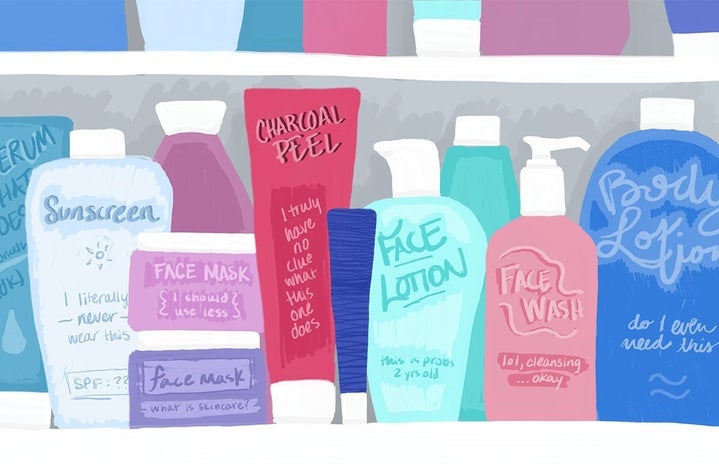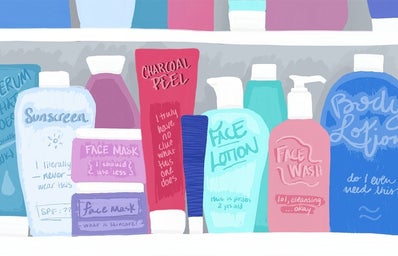If you look at the ingredient list of a drug store face wash, it probably has very few ingredients that you can pronounce. It might feel as though you are reading the ingredient list of a heavily processed Twinkie. Now, you might be thinking that your face wash is as bad for you as eating a Twinkie twice a day. Or, maybe you proudly show off your face wash that has a clean beauty check mark. I am not here to shame your face wash of choice, but I do not think you are getting all the facts.
Clean beauty products are supposedly made without ingredients that cause harm to human health. This classification of products has taken the cosmetics world by storm in the last few years. Websites and apps, such as Goop and Think Dirty, can tell you if your products pass the clean check. This usually ends in a downward spiral, obsessing over the tiny ingredients you put on your face every day. I am sure some ingredients are not ideal to absorb everyday, but many aspects of the clean beauty are simply a marketing scheme. You might be getting played.
Let me start by saying that, yes, the cosmetic world has much work to do in terms of improving products. Yet, many clean beauty product companies are just profiting off of your ignorance. Clean beauty brands argue in favor of their products by tearing down companies that use “harmful” ingredients. The app, Think Dirty, is going to tell you that all of your products have harmful chemicals in them. You have to realize that these chemical proportions are so small that it is very unlikely to cause you any harm. Anything you do in life has risks, and the risk here is likely very small. Therefore, Sephora traps you with their green check marks and tells you that their product doesn’t have Chemicals A, B, and C. You hear “chemical” and assume this is horrible. You probably know nothing about that chemical and its actual risk.
Then, clean beauty companies will tell you that their products don’t have parabens. Parabens generally get lumped all together. Yes, some are bad. Others are necessary. Parabens are preservatives that keep your products from growing mold. Do you want to apply mold to your face? A number of paraben studies are done on animals (ironic, right? Clean beauty, sure). Paraben studies are often done on rats which ingest a large portion of parabens. Unless you eat your moisturizer, I would be cautious of this research. We are not rats and we generally don’t eat our products. Like I said before, you are topically taking in these ingredients at very small quantities.
I am not here to defend terrible skin care brands. I am not telling you to not care about your skin. Your skin is your biggest organ, you need to care. I am simply asking you to research your products. Do not jump on the clean beauty bandwagon before actually investigating the brand and products. The green check on a product is not enough for me.
We have to acknowledge that many women cannot afford these clean beauty products. A green check on your face wash bottle has turned into a class symbol. As a result, women are shamed by other women and companies for their drug store products. These drug store products might work just fine for them! I would love for skin products to be the best version of themselves, but this is not a reality. We need to start pointing the finger at the FDA and cosmetic brands, instead of the women who keep purchasing the less than ideal products. In the meantime, research your products. Do the best you can, and maybe your face wash is just fine.



